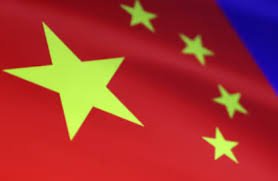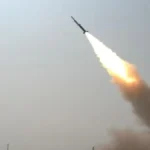China’s Anaconda Strategy Tightens Grip on Taiwan
In recent months, China’s geopolitical ambitions have taken a more aggressive turn, particularly regarding Taiwan. The Chinese government has implemented what is known as the “Anaconda Strategy,” a series of military and economic maneuvers designed to isolate Taiwan and exert pressure on the island. This strategy involves a combination of military intimidation, economic coercion, and diplomatic isolation, aiming to weaken Taiwan’s position in the international community and ultimately reunify it with mainland China.
Military Intimidation
China’s military posturing has escalated dramatically, with increased incursions into Taiwan’s Air Defense Identification Zone (ADIZ). These military exercises are not merely routine; they serve as a clear message of China’s resolve to reclaim Taiwan. By conducting large-scale drills in proximity to Taiwan, China is demonstrating its capability and willingness to use force if necessary. This military aggression has raised alarms within Taiwan and among its allies, prompting discussions about defense strategies and international support.
Economic Coercion
Alongside military threats, China is employing economic tactics to exert pressure on Taiwan. Beijing has limited imports from Taiwan, especially agricultural products, as part of its broader strategy to weaken Taiwan’s economy. This economic leverage aims to sway public opinion in Taiwan against its government, making it increasingly difficult for the Taiwanese leadership to resist Beijing’s demands. The reliance on exports to China puts Taiwan in a precarious position, leading to fears of economic dependency.
Diplomatic Isolation
China’s Anaconda Strategy also focuses on diplomatically isolating Taiwan. Beijing has successfully pressured several countries to sever formal ties with Taipei, reducing Taiwan’s diplomatic recognition globally. This isolation not only undermines Taiwan’s international standing but also limits its ability to participate in international organizations. China’s diplomatic efforts aim to send a message that any attempt at independence will lead to increased isolation and punishment.
International Response
The international community has expressed concern over China’s aggressive tactics. The United States and its allies have reiterated their commitment to Taiwan’s defense, emphasizing the importance of maintaining stability in the Taiwan Strait. However, the effectiveness of these measures remains to be seen, as the situation continues to evolve. The balance of power in the region is shifting, and Taiwan’s future remains uncertain amid these tensions.

Why This News is Important
Significance of Taiwan’s Position
Taiwan holds a crucial position in the Asia-Pacific region, not only geographically but also economically. As a significant player in the global supply chain, particularly in semiconductor production, any disruption in Taiwan’s stability could have far-reaching consequences for the global economy.
Geopolitical Tensions
China’s aggressive stance towards Taiwan is indicative of broader geopolitical tensions between China and Western nations, particularly the United States. Understanding these dynamics is essential for comprehending international relations in the 21st century, as they affect global security and economic policies.
Historical Precedent
The Anaconda Strategy is reminiscent of historical military strategies that have aimed to encircle and isolate adversaries. By examining these strategies, students can gain insights into military theory and the evolution of modern warfare.
Potential for Conflict
With rising tensions, the possibility of conflict in the Taiwan Strait has become a significant concern for policymakers worldwide. Students should be aware of the implications of military conflict in this region and how it could alter the global geopolitical landscape.
Impact on Global Supply Chains
As Taiwan is a major hub for technology and manufacturing, any escalation of tensions could disrupt global supply chains, impacting industries and economies worldwide. This underscores the interconnectedness of modern economies and the importance of diplomatic solutions.
Historical Context
Taiwan’s Historical Background
Taiwan’s history is marked by its complex relationship with mainland China. After the Chinese Civil War, the Republic of China (ROC) retreated to Taiwan in 1949, while the People’s Republic of China (PRC) was established on the mainland. Since then, Taiwan has developed its own identity, governance, and democratic system, while the PRC continues to view Taiwan as a breakaway province that must be reunified.
Rise of China’s Global Influence
In recent decades, China’s rapid economic growth and military modernization have transformed it into a global superpower. This rise has been accompanied by an assertive foreign policy that seeks to reclaim territories it considers historically part of China, including Taiwan. The increasing military capabilities of the PLA (People’s Liberation Army) have changed the balance of power in the region, raising concerns about Taiwan’s security and the potential for conflict.
Key Takeaways from “China’s Anaconda Strategy Tightens Grip on Taiwan”
| No. | Key Takeaway |
|---|---|
| 1 | China’s Anaconda Strategy combines military intimidation, economic coercion, and diplomatic isolation against Taiwan. |
| 2 | Increased military incursions into Taiwan’s ADIZ signal China’s aggressive intentions to reclaim the island. |
| 3 | Economic pressure from China aims to weaken Taiwan’s economy and influence public opinion. |
| 4 | Diplomatic isolation efforts by China have reduced Taiwan’s formal international recognition and participation. |
| 5 | The situation in the Taiwan Strait is critical for global security and economic stability, affecting international relations. |
Important FAQs for Students from this News
1. What is the Anaconda Strategy employed by China?
The Anaconda Strategy refers to a series of military, economic, and diplomatic tactics used by China to isolate Taiwan and exert pressure on the island, aiming for reunification.
2. How has China increased military pressure on Taiwan?
China has ramped up military incursions into Taiwan’s Air Defense Identification Zone (ADIZ), conducting large-scale drills and showing military capability close to Taiwan.
3. What economic measures has China taken against Taiwan?
China has implemented restrictions on imports from Taiwan, particularly agricultural products, as part of its broader strategy to weaken Taiwan’s economy and influence public sentiment.
4. How is Taiwan’s international recognition affected by China’s actions?
China’s diplomatic efforts have successfully pressured several countries to sever formal ties with Taiwan, thereby reducing its international recognition and participation in global organizations.
5. Why is the situation in the Taiwan Strait significant for global security?
The Taiwan Strait is a critical geopolitical flashpoint. Tensions between China and Taiwan could lead to conflict, which would have widespread implications for global security and economic stability.
Some Important Current Affairs Links

















